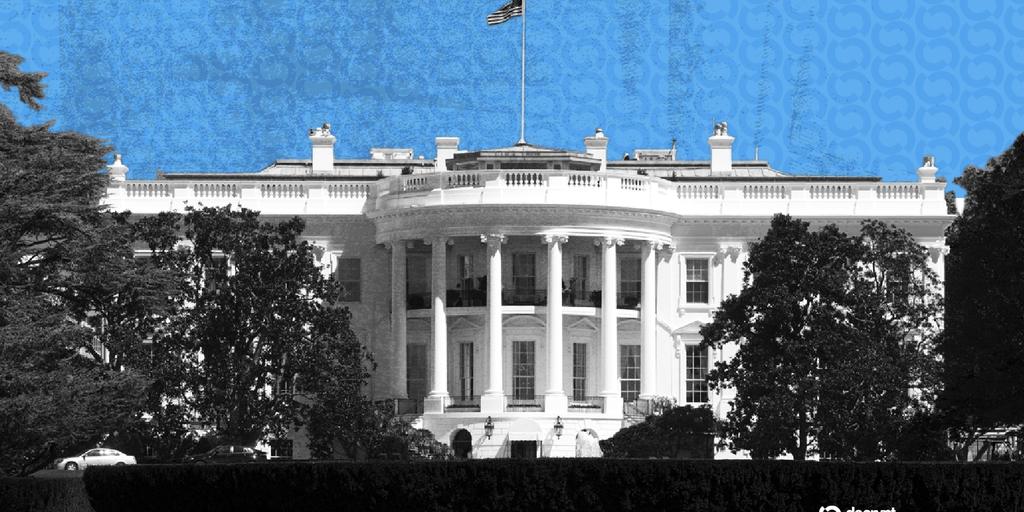In brief
- The House passed the stablecoin-focused GENIUS Act with overwhelming bipartisan support, sending the bill to President Trump’s desk for signature.
- The CLARITY Act, a crypto market structure bill, also performed much better than expected, passing the House handily with 78 Democratic votes.
- Industry leaders hailed the successful culmination of “Crypto Week,” which only hours prior had been nearly derailed.
After a madcap week of starts and stops, the House voted overwhelmingly Thursday afternoon to pass the GENIUS Act, a landmark piece of legislation that will create a federal framework for creating and issuing stablecoins.
In a bipartisan showing, 102 Democrats joined 206 Republicans in voting for the bill, which was drafted in and previously passed by the Senate.
The GENIUS Act now heads to President Donald Trump’s desk for signature, where it will become the first-ever major piece of crypto legislation to become law. In a show of the White House’s enthusiasm for the bill, a signing ceremony for the GENIUS Act has already been scheduled for tomorrow afternoon.
Minutes prior to voting on GENIUS, the House also passed the CLARITY Act, a bill establishing a framework for regulating most other crypto assets. A surprising 78 Democrats broke with party leadership to support the bill.
Crypto leaders immediately hailed today’s successful vote as a historic victory and vindication for the industry, which has spent years, hundreds of millions of dollars, and countless hours working to legitimize its core businesses.
“Today’s passage of stablecoin legislation marks a historic achievement for the United States, a resounding victory for innovation, and a major step toward establishing a clear regulatory framework for digital assets,” Amanda Tuminelli, executive director of the DeFi Education Fund, an industry lobbying group, said in a statement shared with Decrypt.
The passage of GENIUS puts a stamp of legitimacy on the stablecoin industry, which serves as a crucial connecting piece between the crypto market and traditional finance. Stablecoins are tokens, typically pegged to the U.S. dollar, designed to remain steady in price and thus allow users to enter and exit crypto positions without accessing dollars directly.
Numerous retail giants and major banks have indicated interest in wading into stablecoins, or launching their own, but have waited to do so until the sector is firmly legalized.
The House’s market structure bill, CLARITY, performed better than expected Thursday, given industry leaders had predicted it faced steep odds of receiving strong bipartisan support—crucial to giving it momentum as it heads to the Senate.
The bill had received criticisms from Democrats in recent weeks for failing to outlaw President Donald Trump’s personal crypto ventures, and for not containing strong enough provisions on the regulation of the decentralized finance sector.
On Thursday, though, the CLARITY Act ultimately received more votes from Democrats than a crypto market structure bill the House considered last year. “This is bonkers,” one crypto policy leader, who expected a more meager turnout on CLARITY, told Decrypt.
It remains an open question whether the House-drafted bill will make inroads in the Senate, where lawmakers are currently drafting their own version of market structure legislation.
A third crypto bill, one prohibiting the United States from developing a central bank digital currency (CBDC), passed with a much thinner margin, along party lines. All Republicans voted in favor of the measure, which the overwhelming majority of Democrats opposed.
The GOP has railed for years against CBDCs, which it says would give the government excessive access to information about users’ private financial information.
The bill faces steep odds in the Senate, where it would need bipartisan support to pass.
All of the crypto bills voted on today were considered as part of “Crypto Week,” a legislative bonanza promoted by House Republican leadership and the White House. The initiative nearly derailed earlier in the week, when a faction of hardline Republicans halted proceedings due to stated objections about the strength of anti-CBDC measures in the GENIUS Act.
The rebellion, which coincided with a fracture among MAGA supporters regarding the Trump administration’s handling of its investigation into deceased financier Jeffrey Epstein, was eventually quashed, with a compromise that will see anti-CBDC language added to a pending defense spending bill.
Editor’s note: This story was updated after publication to include additional details regarding the anti-CBDC bill also passed by the House today.
Daily Debrief Newsletter
Start every day with the top news stories right now, plus original features, a podcast, videos and more.







